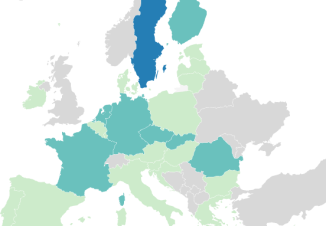
Under a new set of proposals published on 9 December 2021, the EU is seeking to provide enhanced rights for digital platform workers. The package includes a Communication (click here to download) setting out the EU’s approach to the gig economy, a draft Directive with concrete measures to enhance platform workers’ rights and draft Guidelines on how EU competition law applies to attempts by self-employed gig economy actors to bargain collectively.
The proposed Directive (click here to download) would introduce criteria to assess whether a platform should be considered an ‘employer’; if two of these criteria, which are set out in Article 4(2) of the draft Directive, are met, there will be a legal presumption that the platform is an employer. This presumption can contested by platforms, which would have the burden of demonstrating that their arrangements do not constitute employment relationships.
Workers for platforms that are classified as employers would then enjoy enhanced legal protection and benefits. In particular, they would have a right to a minimum wage in member states which have one, collective bargaining, working time and health protection, the right to paid leave, enhanced protection against work accidents, unemployment and sickness benefit and contributory pensions.
The Directive also includes provisions on the use of algorithms by digital platforms, which would increase transparency around, and monitoring of, their use and give both workers and genuinely self-employed individuals the right to contest automated decisions.
The proposals seek to simplify access to information about the operations of digital platforms to facilitate enforcement. The Communication that accompanies the draft Directive calls for action to implement global regulatory standards and facilitate cross-border enforcement.
The package also includes draft Guidelines (click here to download) on how self-employed individuals operating in the platform economy could negotiate collectively to improve working conditions without falling foul of EU competition law.
It will be some time before these proposals become law and they may change along the way. There will be an eight-week consultation with stakeholders on the guidelines before they are adopted, while the proposed Directive will be discussed by the Parliament and the Council. Once a final Directive is adopted, member states will have two years to implement its provisions nationally.


